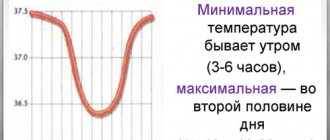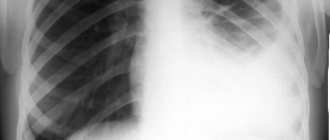Cough
is a reflex reaction of the body to irritation of the mucous membrane of the respiratory tract.
The body tries to clear the airways with the help of forced (sharp, intensified) exhalation, which has a characteristic sound. Thus, coughing is a protective reaction of the body. And at the same time, it is a symptom of many diseases. The urge to cough means that free breathing is impaired for some reason, for example, due to the development of inflammation. Cough
Cough comes in different forms. The way we cough can help determine the cause of the cough and diagnose the disease that caused it. It is advisable to pay attention to the main characteristics of a cough in order to tell your doctor about them.
How long does the cough last?
To assess the clinical development of the disease, it is important to determine the nature of the cough. It can be acute, protracted and chronic. A cough is considered acute if it has been present for less than three weeks. Such a cough, as a rule, accompanies the development of acute respiratory diseases and serves to clear the airways of phlegm. Acute cough is usually persistent; that is, while a person is sick, he coughs, and a decrease in the severity of attacks and the cessation of coughing indicates recovery. If the cough returns again after some time, then we are talking about a lingering cough. A cough that lasts from 3 weeks to 3 months is considered to be protracted. Such a cough (a month or longer) means that the disease causing it develops slowly and tends to become chronic. If a cough does not leave a person for more than 3 months, it is classified as chronic. With chronic cough, periods of exacerbation alternate with periods of remission (when there is no cough). Chronic cough is also characterized by fixation - the occurrence of a cough at a certain time of day. Chronic cough is an alarming symptom because it is usually a sign of serious illness. A constant cough loses its useful function and may itself be the cause of the development of certain pathologies.
Cough medicines for children
How to treat cough in children
First of all, treatment is carried out to combat the causative agent of the disease and to alleviate the general condition of the child.
- If the cough is caused by a bacterial infection, then antibacterial drugs are prescribed.
- For a viral cause of the disease, antiviral drugs are prescribed, for a fungal infection of the lungs, antifungal drugs are prescribed.
- The allergic form of the disease requires the use of antihistamines.
- If sputum is poorly separated from the bronchi, then the prescription of mucolytic drugs is required.
- If your body temperature is elevated (above 38 degrees), you need to take antipyretics.
Cough preparations by group
What cough remedies should not be used by children?
In childhood, the cough reflex is not complete; it is formed by 5-6 years. It is important for both pediatricians and parents to remember that the use of drugs that suppress the cough reflex is contraindicated, especially in young children. It is also necessary to limit the use of expectorants, as they increase the volume of mucus secreted, which can lead to stagnation and further reinfection.
What can you give children for cough?
Mucolytics are the most promising for the treatment of diseases of the upper and lower respiratory tract. They are used for non-productive or productive cough with sputum that is difficult to separate. Today, the following mucoactive drugs are widely used in pediatric practice: bromhexine, ambroxol and acetylcysteine (ACC).
The main methods of using medicines in children are oral and inhalation. Depending on the disease, age and preference of the child, the choice of form is considered individually.
Is the cough wet or dry?
A wet (or wet) cough is accompanied by sputum production, which is why it is also called productive. Microbes and their waste products are removed from the respiratory tract with sputum. With a viral infection, the disease often begins with a dry cough
, which subsequently turns into wet. The type of sputum is of great importance. The appearance of pus in the sputum indicates a bacterial infection. An increase in its quantity may indicate an abscess rupture or worsening of the condition. An unfavorable sign is the appearance of blood in the sputum.
Survey
Diagnosis of the causes of a deep dry cough is usually carried out by a general practitioner or family doctor. According to indications, consultations with specialized specialists are prescribed. The primary examination is aimed at assessing the condition of the lower respiratory tract, which is most often affected by symptoms. The primary recommended examination methods are:
- X-ray studies
. Typically, fluorography or plain radiography of the lungs is performed as screening. X-ray diagnostics can detect inflammatory changes, malformations, signs of systemic processes, space-occupying formations in the mediastinum and chest. - Rapid diagnosis of tuberculosis
. It is prescribed for prolonged causeless cough, there is information about contacts with patients with tuberculosis infection, and the patient belongs to risk groups. A tuberculin test or molecular genetic test is indicated. - Serological studies
. Due to the absence or meager volume of expectorated sputum, microbiological culture is usually ineffective. Therefore, to exclude a possible infectious process, RIF, ELISA, and PCR diagnostics are more often performed.
A general blood test is performed to identify acute bacterial inflammation, in which the ESR increases, leukocytosis is noted, a shift in the leukocyte formula to the left, as well as allergic processes occurring with eosinophilia. At the next stages of diagnosis, additional pulmonary examination methods are often prescribed (bronchography, bronchoscopy, examination of external respiratory function, ultrasound of the pleura and mediastinum, tomography of organs located in the chest, etc.), and allergy tests.
Chest X-ray is used to detect pathological processes
Causes of cough. Diseases that cause cough.
The cause of cough may be:
- acute respiratory infections (flu, ARVI);
- diseases of the upper respiratory tract (chronic rhinitis, chronic sinusitis, pharyngitis) - in this case, coughed up mucus enters the respiratory tract from the nasopharynx;
- laryngitis;
- acute or chronic tracheitis;
- acute or chronic bronchitis;
- pneumonia (pneumonia);
- pleurisy;
- bronchial asthma;
- tumor processes (including lung cancer);
- tuberculosis;
- heart failure;
- ascaridiosis (infection with roundworms);
- smoking;
- inhalation of polluted air (cough is common in representatives of some professions - miners, joiners, carpenters);
- taking certain medications used to treat heart disease and hypertension.
Treatment of severe cough with Doctor MOM® drugs
Medicines based on herbal components from the Doctor MOM® line can be used to treat both unproductive and unproductive severe cough. Due to the multidirectional action of the active substances that make up the syrup, they produce anti-inflammatory, bronchodilator, mucolytic and expectorant effects. For the treatment of adults, any of the products from the Doctor MOM® line can be used (in the absence of contraindications and individual sensitivity to the components of the drug), and children are prescribed syrup Doctor MOM® and Doctor MOM® Phyto ointment (from 3 years of age).
Child's cough
Child's cough
In children, the cause of cough can also be:
- whooping cough;
- measles;
- mouth breathing. If a child constantly has a stuffy nose and is used to breathing through his mouth, cold and dry air entering the respiratory tract that has not passed through the nasal sinuses can cause irritation of the mucous membrane and cough;
- entry of a foreign body into the respiratory tract. In this case, the cough begins suddenly, the child turns red and begins to choke. It is necessary to help the child cough up a foreign object, for which you should press his chest and stomach to a hard surface, tap between his shoulder blades, or hold him upside down and shake him, tapping on his back. If help fails, the child should be taken to the hospital immediately.
Comparison criterion 3 - cough timbre
Dry cough is called barking
, similar, as one might imagine, to the loud barking of a dog.
This situation is due to the fact that the sputum becomes viscous and is difficult or impossible to cough up. A hoarse or hoarse cough
with dull and whistling sounds indicates diseases such as laryngitis, tracheitis, bronchitis or pneumonia.
With laryngitis and tracheitis, the cough is accompanied by a hoarse voice, and with bronchitis and pneumonia - chest wheezing. A silent cough
may be associated with severe inflammation of the vocal cords. It sometimes occurs in patients with extreme malnutrition or heart failure.
A cough is a reason to see a doctor
Cough is a very common symptom. Very often it is combined with other symptoms such as a runny nose, fever, sore throat or chest pain. In such cases, we usually resort to medical help in a timely manner.
But in other cases, cough may be the only symptom: other symptoms are completely absent or appear vaguely. And then the illusion arises that there is nothing serious and you don’t need to see a doctor. In this case, the cough is often chronic, since it is the chronic cough that, as a rule, acts as an isolated symptom.
This is a dangerous misconception. Since many serious diseases (tumors, lung cancer) in the initial stages can only manifest themselves as a cough. In case of heart failure, the patient may complain of cough and not pay attention to other symptoms (shortness of breath, weakness, dizziness, hypertension). Therefore, if the cough does not leave you for several weeks ( cough for more than a month
– this is already a lingering cough) or if you notice
an increase in cough in the morning or at night
, be sure to consult a doctor.
If your child coughs, take him to the doctor. Children's immunity is weaker than that of an adult, so more sensitive monitoring is required over the child's health. Perhaps the child is simply clearing his throat (a healthy child can cough up to 10-15 times a day - this is how his body clears the airways of dust and germs), or maybe he develops an inflammatory process in the nasopharynx or nasal breathing is impaired..
Symptomatic therapy
The periodic appearance of attacks of deep dry cough or its persistence for 5-7 days, especially in combination with low-grade or high fever, other breathing disorders (shortness of breath, suffocation), thoracic pain is a serious reason to seek qualified medical help. Self-medication in such cases is unacceptable. The patient is advised to limit physical activity, and in case of fever and poor health, stay in bed.
It is important to ensure regular ventilation and sufficient humidification of the air in the room. Before identifying the causes of a deep cough, to alleviate the symptoms and relieve intoxication, it is recommended to drink plenty of compotes from dried fruits, fruit drinks from fresh berries, juices, and warm tea. Drinking warm alkaline drinks - still mineral water, heated milk with a small amount of soda - is effective. If there is a reasonable suspicion of whooping cough, the sick child or adult should be protected from bright light, noise, and other irritants.
WHAT IS NIGHT COUGH DANGEROUS?
Coughing attacks that occur at night can cause many temporary and even permanent health problems. To understand how harmful this condition is to the body, we can cite only one of the complications. Do you like memory impairment, decreased visual acuity, and impaired sense of smell? It would seem that what does a night cough have in common with the loss of such important functions as the ability to clearly see the world around us, remember information and smell? The relationship is more obvious than it seems at first glance: oxygen starvation and lack of rest in the main organ of the human body - the brain. In the dark, the brain must rest and restore resources used during the day. These processes are possible only during deep sleep, into which the body is simply unable to immerse itself - it is constantly awakened by coughing. You will survive several such nights without consequences, but a prolonged dry or wet night cough will sooner or later lead to chronic fatigue of the brain with subsequent dysfunction of its various areas. What to do if a night cough interferes with normal life?
Possible treatment
As for the treatment of any cough, it is complex. Some of the measures taken are aimed at making coughing easier, and some are aimed at eliminating the cause of this phenomenon.
The treatment regimen is always individual and prescribed by the doctor after a complete diagnosis of the patient with examination and tests. As a rule, drugs used to eliminate fever-free cough can be divided into several groups:
- antitussives;
- thinning;
- antihistamines (antiallergic);
- antifungal;
- antibacterial (antibiotics);
- antiviral.
The choice of specific medications depends on the reasons why the cough appeared and should only be carried out by a specialist.
Additionally, rinses and inhalations with medicinal herbs and oils (eucalyptus, menthol, chamomile, lavender, string, sage, echinacea) may be prescribed.
During pregnancy
If there is no fever during pregnancy, a cough may be caused by hormonal changes. When the entire body is rebuilt, it becomes a temporary phenomenon and, as a rule, does not cause as much harm as other diseases. However, even a hormonal cough should not be neglected. The reasons for it, of course, cannot be eliminated, but they need to be mitigated. Constant contraction of the abdominal muscles when coughing leads to contraction of the ligaments. And the most unfavorable consequences of this are the appearance of bleeding and premature birth.
It is better to refuse drug treatment for cough during pregnancy and give preference to traditional medicine. However, you should not drink anything on your own, even seemingly harmless herbal teas. They are allowed to be taken only after consultation with your doctor, because all substances that enter the body of a pregnant woman affect the health and proper development of the fetus.
What you need to know about cough?
Any cough is not a pathology in itself, it is a consequence of certain disorders in the body. By nature, it is conceived as a kind of protective mechanism. When irritants or foreign bodies (including microscopic ones) enter the respiratory system, receptors begin to react, muscles contract, and we cough. In this way, the body tries to cleanse itself, and if it manages to do this on its own, there is no need for additional treatment.
With a rare, isolated cough, there is really no need to worry. Perhaps there is a lot of dust accumulated in the room or you have become hypothermic outside. But when it lasts more than seven days, even if there is no fever or other signs of illness, it is always a sign of illness. In this case, you should not limit yourself to traditional methods of getting rid of cough and delay going to the doctor. By eliminating a symptom, you do not solve the problem itself, and this is what is most important.








